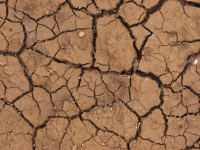Drought, water management and environment: OiEau's experts testimonies!

With climate change, rising temperatures and evaporation, droughts are going to intensify in the coming years on a global scale.
How can better water management could face this risk? What role should nature play? Why intensify the production of knowledge and the collection of data on water? How to better secure supplies? Through its activities of training, data collection, international cooperation and networking for the sustainable management of water resources, OiEau tries to respond, in a transversal way, to the current and future drought phenomena.
On the occasion of World Environment Day, which reminds us of the importance of "living in harmony with Nature" for the sustainable development of societies, our experts explain their actions to better understand risk management, water security and the preservation of ecosystems in the face of climate fluctuations.

"Drought has a real impact on natural environments. Five consequences are generally mentioned: general drying out with a direct impact on biodiversity, fragmentation of environments where the dispersion of "pockets of water" will prevent certain species from accessing their habitat, an increase in water temperature, degradation of water quality with a greater concentration of pollution, and the proliferation of certain plants. To face these phenomena, we prioritise actions to "slow down" the water cycle, in particular through the maintenance of wetlands. If water runs off slowly, it infiltrates better into the subsoil. Taking into account natural environments to reduce water-related risks is one of the subjects we defend on an international scale through our various networks, such as the International Network of Basin Organisations (INBO). With The Nature Conservancy, we are carrying the "water and nature" declaration, which insists on the interdependence between water and natural environments to reduce the risks of droughts and the quantitative deficit. Promoted in Dakar during the 9th World Water Forum, our objective is to include it in the United Nations Water Convention in 2023 to remind international actors that preserving nature is essential to good water management, and vice versa. "
Maxime Fouillet, "Water and Nature" Scientific Mediator

"A better understanding of drought phenomena is one of the skills targeted in our training courses. We are especially interested in understanding, from a quantitative point of view, the evolution of groundwaters and the different types of circulation that exist depending on the geological subsoil nature and the rainfall. For example, groundwaters with sedimentary rocks, are often more permeable in size, as they are more porous, and consequently may be less affected by drought than by the uses responsible for the withdrawals. On the contrary, the groundwaters with crystalline rocks, as can be seen in the Armorican Massif or the Massif Central, are smaller, more nervous and particularly vulnerable to climatic phenomena. In the current context, knowing the resource well is essential, but also understanding the uses, withdrawals (industry, agriculture, drinking water, etc.) and the systems of actors involved is necessary if we want to achieve real sustainable management of the water resource."
Vincent Raspic, Trainer

"OiEau is a reference actor to inform on the risks of drought on a national scale. Each month, we publish the "national hydrological situation bulletin" which describes the state of the water resources on the Metropolitan territory. Consisting of a set of maps, evolution graphs and their comments, this bulletin is the only document, in France, that makes it possible to gather varied informations on the quantitative situation of surface water and groundwaters resources. Thanks to the various partners, we are able to compile various data that allow us to evaluate the state of the snow cover as well as rainfall, the flow of rivers and the filling of dams. This bulletin is a real decision-making tool because it allows national and local public institutions to have a support document giving an overall view of the hydrological situation and thus to take appropriate measures to manage water resources".
Florine Leveugle, Quality and Data Modelling Engineer

"In a context of drought and climate change, securing access to water is essential. At OiEau, we try to promote an integrated, multi-thematic and multi-actor approach to water resources, in the sense that, in order to preserve the resource, it is necessary to look at the uses and actors of the territories in France and internationally. Concerning the challenges of water in agriculture, we are interested in securing supplies, through the protection of catchments against diffuse pollution, but also in saving the resource, through the development of agronomy. Beyond pure irrigation techniques, there are many levers for reducing the water needs of plants, such as the study of soil structure and crop itineraries.
Simon Barreau, "Water and Agriculture" Project Manager
